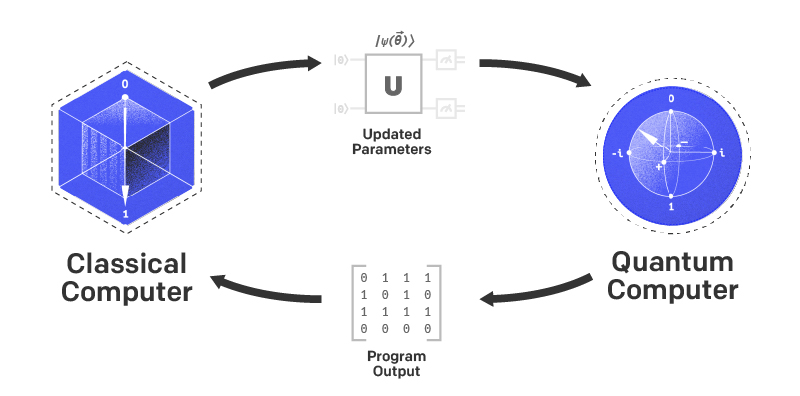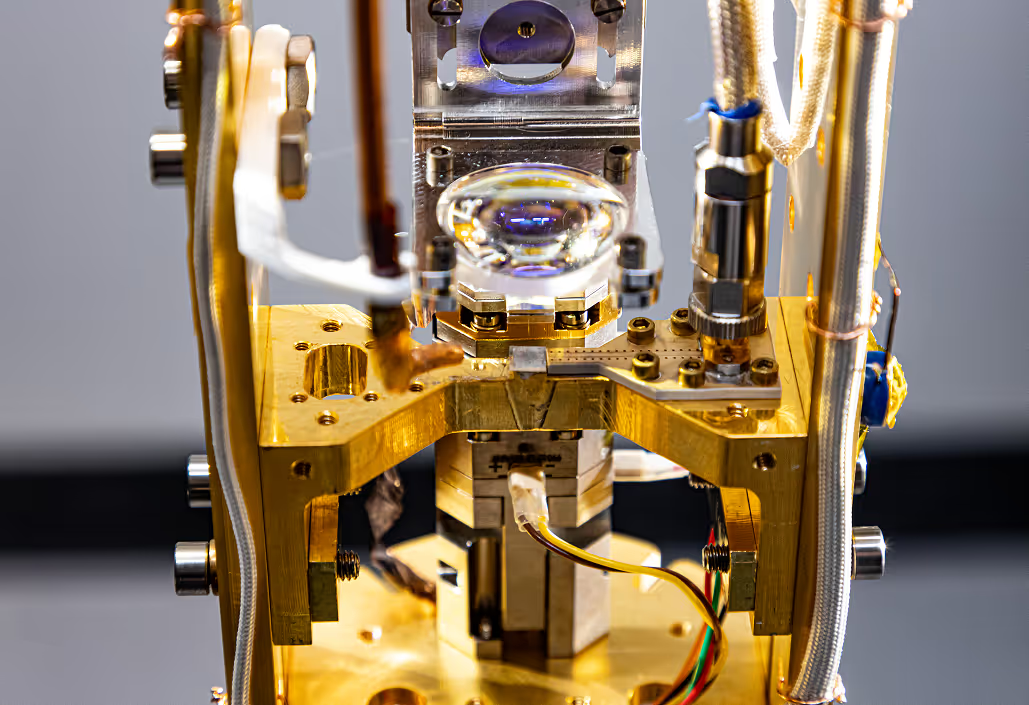“Hybrid quantum computing” is the preferred industry term for a simple idea: a quantum computer and a classical computer working together to solve a problem.
In a sense, this describes all of quantum computing: we rely on classical computers for almost every aspect of running a quantum computer. From the system that orchestrates the computer’s many subcomponents and performs the quantum gates, to the software and hardware that measures and interprets the results of a computation, all the way up to the cloud computers that compile, optimize, and convert user-submitted programs to something that can be run on our hardware.
In practice, though, when we talk about “hybrid” computation, we mean an approach that takes the form of a back-and-forth collaboration where different aspects of a problem are passed between the quantum and classical tools best suited for each stage.
According to Matthew Keesan, IonQ's VP of Product Development, these hybrid quantum-classical algorithms may be one of the best ways for users to get the most out of a current or near-term quantum computer.
“There are lots of things that classical computers are better, or faster at, especially with our current generations of hardware. By letting the quantum computer do what it’s good at, and the classical computer do what it’s good at, you can get more out of both,” Keesan said.
He used the Variational Quantum Eigensolver (VQE) algorithm, a hybrid algorithm useful in a variety of chemistry applications, as an example. VQE can be used to calculate the “ground state”—the most chemically stable configuration—of a molecule by iteratively calculating the energy of a given configuration and comparing it to previously calculated energies classically, changing the inputs until an optimal answer is achieved.
"If I'm trying to optimize some parameter based on some function, find some maxima or minima, I can do this by comparing the value of the function in that state classically. That part doesn’t need a quantum computer,” Keesan explained. “I prepare the state on the quantum computer, bring the results back to the classical computer, then generate a slightly new state, walking the state space in this interplay between classical and quantum computers."
The trick lies in finding the right control points—“knobs”—that allow the quantum and classical portions of the algorithms to effectively interact. There are a variety of effective approaches, depending on the algorithm, but VQE does this by creating a single quantum circuit with certain parameterized components (angles of certain gates within the circuit, for example) and then using the classical optimization algorithm to vary these parameters until the desired outcome is reached.

While water molecules are a relatively simple and well-understood form of matter, and its ground state can be calculated with a classical quantum simulator, IonQ's 2018 peer-reviewed paper on the ground-state energy estimation of a water molecule using our first-generation quantum computer is a great example of how these algorithms are being used right now, while also showing how much more useful hybrid quantum computing could soon to become.
As IonQ introduces successive generations of our quantum hardware we may find ourselves capable of exploring new and more complex molecules—ones that can’t be simulated classically—to accelerate chemistry research. We anticipate that the techniques that we are working with our partners to master using current hardware can allow us all to do radically impactful work as new generations of quantum computers arrive.
"Today we're optimizing techniques to simulate molecules we already understand, so we're prepared as we scale," Keesan said. "As the molecules get more complicated we'll need bigger quantum computers—and obviously more classical compute as well."
This is why many classical high-performance computing players are keenly interested in the space: quantum computers will never completely replace classical computers, but instead will become important aspects of a larger HPC strategy where quantum and classical systems work in tandem to solve currently intractable problems in chemistry, materials, cosmology, finance and more.
Today, hybrid quantum computing works by accessing IonQ's quantum systems via the cloud and combining their abilities with classical cloud compute, but we expect to soon see a future where combined, on-premise hybrid platforms improve the efficiency, utility, and ubiquity of these techniques. One day, it may become so integrated that all cloud computation is “hybrid” in nature, and the end user won’t need to know or care which type of computer is doing what—all they’ll experience is better results.



